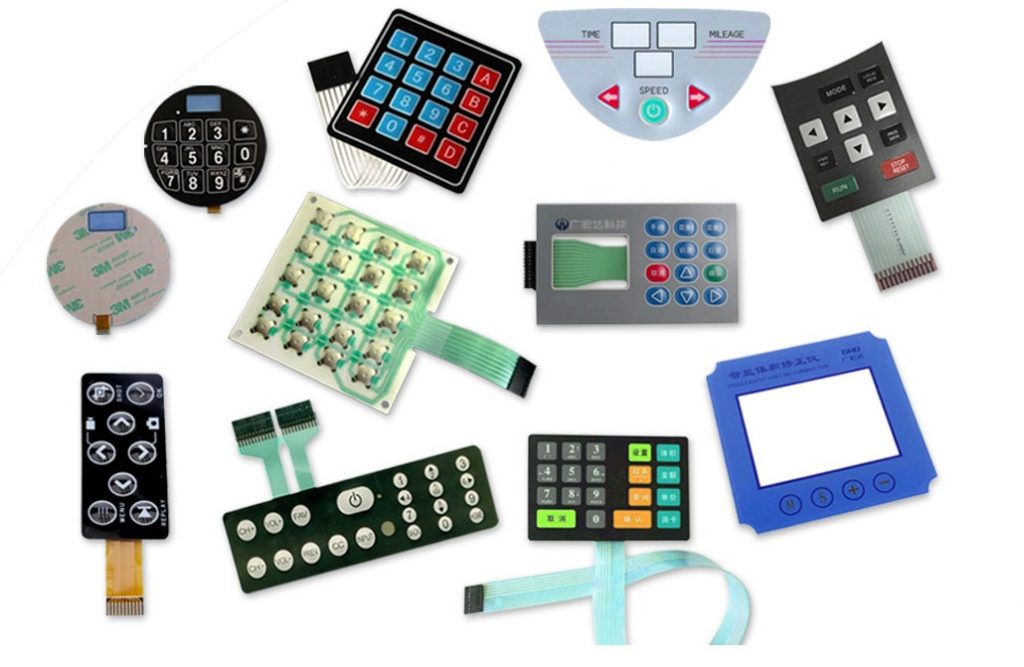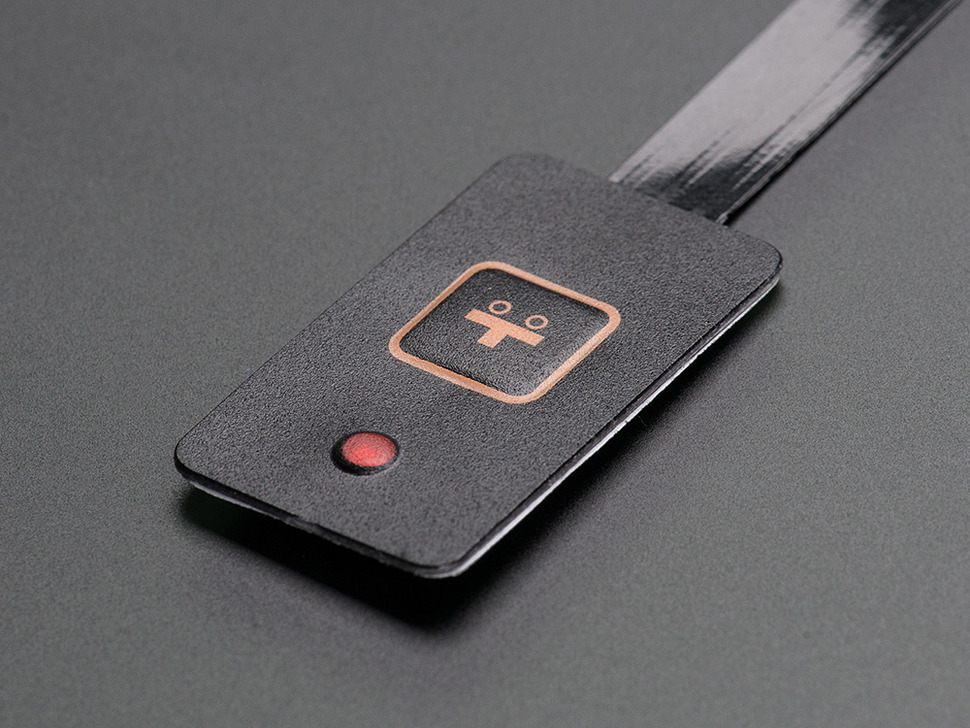Membrane Switch Manufacturer Providing Durable and Resilient Interfaces
Membrane Switch Manufacturer Providing Durable and Resilient Interfaces
Blog Article
Comprehending the Importance of Membrane Switch in Modern Electronics and Their Applications
Membrane switches serve as a vital part in modern-day electronic devices, offering an efficient interface for customer interaction. Their light-weight and customizable nature makes them appropriate for a series of applications throughout diverse markets. Comprehending their vital parts and benefits can supply insights right into their growing significance. As modern technology continues to advance, the development of Membrane switches over raises questions about their future applications and style advancements. What lies in advance in this dynamic area?

What Are Membrane Switches?
Membrane switches are necessary elements in modern electronics, functioning as interface that facilitate interaction in between customers and gadgets. These switches include numerous layers, including a graphic overlay, an adhesive layer, and a circuit layer, every one of which collaborate to produce a sturdy and functional interface. The layout enables a flat, inconspicuous service that can be tailored concerning dimension, shape, and visual look, making them suitable for different applications, from customer electronics to clinical tools. The tactile comments provided by Membrane switches over enhances individual experience, while their resistance to dirt and moisture makes them optimal for testing environments. In addition, Membrane switches can integrate attributes such as backlighting and printed graphics, even more broadening their use. Their convenience and robustness make them a preferred option in sectors where integrity and ease of use are critical, eventually adding to the smooth procedure of modern-day electronic gadgets.
Secret Parts of Membrane Switches Over
While different parts contribute to the functionality of a membrane button, 3 main layers play substantial functions in its layout and procedure. The leading layer, normally made from a durable polymer, works as the user interface for customer interaction, often including published graphics and symbols. Underneath this is the spacer layer, which keeps the necessary range between the top layer and the circuit layer. This spacer layer warranties that the switch activates only when pushed, preventing accidental inputs. Finally, the circuit layer consists of conductive traces that finish the electric circuit when the top layer is dispirited. These traces can be made from various materials, consisting of copper or silver. With each other, these elements develop a trusted and robust device that is compact and functional, ideal for a wide variety of digital applications, from family home appliances to medical devices. Understanding these vital elements is crucial for appreciating the overall capability of Membrane buttons.
Advantages of Using Membrane Changes

Membrane Switch Manufacturing Process
Understanding the Membrane switch manufacturing process exposes the complex actions included in creating these crucial parts. The procedure typically begins with the design stage, where formats and requirements are developed making use of specialized software program. Following this, the visuals overlay is published on an adaptable substratum, typically utilizing high-resolution printing methods to guarantee clarity and precision.Next, the adhesive layers are used, which offer to bond the different elements together. The circuit layers, made from conductive inks or products, are after that printed onto a separate substratum. These layers are thoroughly aligned and laminated to develop a practical switch.After assembly, the switches undertake checking to confirm functionality and durability. Quality assurance procedures are executed throughout the process to recognize and correct any issues. The finished Membrane buttons are packaged and prepared for distribution, all set to fulfill the needs of modern electronic applications.
Applications of Membrane Switches Over in Numerous Industries
Membrane buttons are progressively utilized across numerous markets, specifically in medical tools and customer electronics. In the medical area, they give reliable control interfaces for tools that need specific operation. Likewise, in consumer electronics, these switches enhance individual interaction by using sleek and receptive user interfaces.
Medical Tools Control
Numerous modern medical gadgets make use of Membrane buttons for structured operation and enhanced user interaction. These switches supply a reliable, resilient interface for a range of applications, consisting of analysis devices, person surveillance systems, and medical tools. Their personalized layouts permit for specific layouts that can accommodate the special needs of health care specialists, making sure user-friendly navigating and efficient accessibility to crucial functions. In addition, Membrane buttons are immune to pollutants, making them ideal for sterilized environments. The tactile responses they provide can enhance customer self-confidence, reducing the threat of errors during essential medical procedures. In general, the assimilation of Membrane switches in medical equipment greatly adds to enhanced operational effectiveness and person safety and security in health care settings.
Customer Electronic Devices Interfaces
In the domain name of customer electronics, Membrane switches play a critical duty in boosting interface throughout a variety of devices. These switches are important to products such as remotes, microwaves, and gaming consoles, supplying a user-friendly and reliable interface. Their layout enables a smooth assimilation of graphics and performance, making it possible for makers to develop sleek, contemporary aesthetic appeals without endangering use. Membrane buttons are also known for their durability, frequently holding up against comprehensive usage and direct exposure to different ecological problems. Additionally, they can integrate functions like backlighting and tactile responses, additional enhancing the user experience. As consumer demands for innovative yet instinctive user interfaces grow, Membrane switches over proceed to be a vital part ahead of time digital tool functionality.
Layout Factors To Consider for Membrane Switches Over
Creating efficient Membrane switches needs mindful attention to different elements that influence both capability and customer experience. One vital factor to consider is the selection of products, as they can affect durability, responsive feedback, and visual allure. Choosing an appropriate adhesive is vital for assuring lasting adhesion and resistance to ecological factors.In addition, the layout and layout of the button should suit customer communication, with button sizes and spacing enhanced for convenience of usage. The consolidation of graphics and labeling ought to focus on clearness and exposure under numerous illumination conditions.Consideration of electrical qualities, such as actuation force and button sensitivity, will certainly improve the responsiveness of the Membrane button. Moreover, the style must fit producing processes to ensure cost-effectiveness and timely production. Generally, a well-balanced layout improves both the customer and the performance experience of Membrane switches in modern Find Out More electronics.

Future Trends in Membrane Switch Modern Technology
As technology continues to advance, Membrane switches are positioned to incorporate new improvements that will certainly improve their functionality and application in various areas. One considerable pattern is the unification of adaptable and long lasting products, which will certainly increase the life-span and integrity of these buttons. Enhanced surface structures and adjustable graphics are also prepared for, permitting even more instinctive individual interfaces.Moreover, the combination of clever technology, such as touch-sensitive surfaces and haptic comments, is anticipated to enhance customer communication, making Membrane changes a lot more receptive and interesting. In addition, advances in printed electronics will allow much more complicated wiring within thinner profiles, better broadening style possibilities.Sustainability will certainly additionally play an essential function in future growths, as manufacturers explore eco-friendly materials and manufacturing procedures. Overall, these trends will certainly assure that Membrane changes stay relevant and crucial in a progressively electronic and interconnected globe.
Often Asked Questions
How Do Membrane Switches Contrast to Conventional Mechanical Buttons?
Membrane changes offer benefits over traditional mechanical switches, including lowered size, lighter weight, and improved toughness. They commonly provide a secured surface, enhancing resistance to dirt and moisture, making them perfect for diverse applications.
What Materials Are Commonly Used in Membrane Switch Construction?

Can Membrane Changes Withstand Extreme Environmental Issues?
Membrane switches can withstand severe ecological conditions, relying on their style and products. Top notch building and constructions frequently include durability versus temperature level changes, humidity, and direct exposure to chemicals, making them appropriate for different requiring applications throughout sectors.
How Much Time Do Membrane Switches Generally Last Prior To Failure?
Membrane switches over commonly exhibit a lifespan varying from 1 to 10 million actuations, depending on factors such as use frequency, environmental problems, and making top quality. Normal maintenance can prolong their resilience and operational integrity substantially.
Are Membrane Changes Adjustable for Details Applications?
Membrane buttons are without a doubt adjustable for specific applications. They can be customized in dimension, performance, and design, enabling manufacturers to fulfill special individual needs and boost product aesthetics while preserving functional efficiency and resilience. Membrane buttons are essential parts in modern-day electronics, serving as customer interfaces that assist in communication between gadgets and users. The tactile comments given by Membrane switches enhances individual experience, while their resistance to dust and dampness makes them perfect for challenging environments. The consolidation of graphics and official site labeling ought to prioritize clearness and presence under numerous lighting conditions.Consideration of electrical attributes, such as actuation force and Check This Out switch level of sensitivity, will enhance the responsiveness of the Membrane button. Boosted surface area textures and customizable graphics are likewise anticipated, allowing for even more instinctive customer interfaces.Moreover, the assimilation of wise technology, such as touch-sensitive surfaces and haptic responses, is expected to enhance user interaction, making Membrane changes much more receptive and engaging. Membrane switches deal advantages over traditional mechanical buttons, including minimized size, lighter weight, and improved resilience.
Report this page